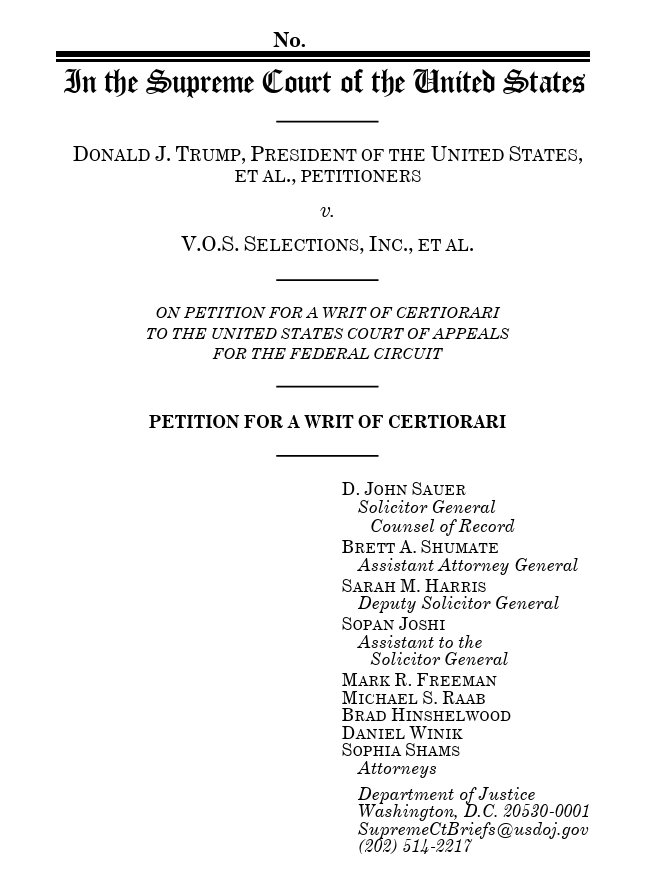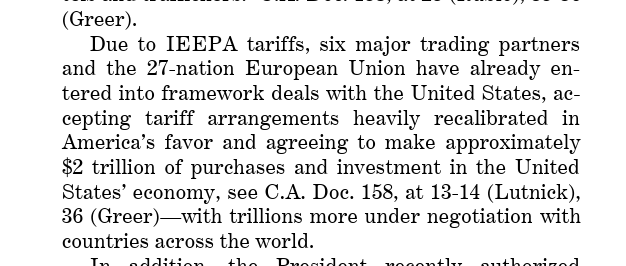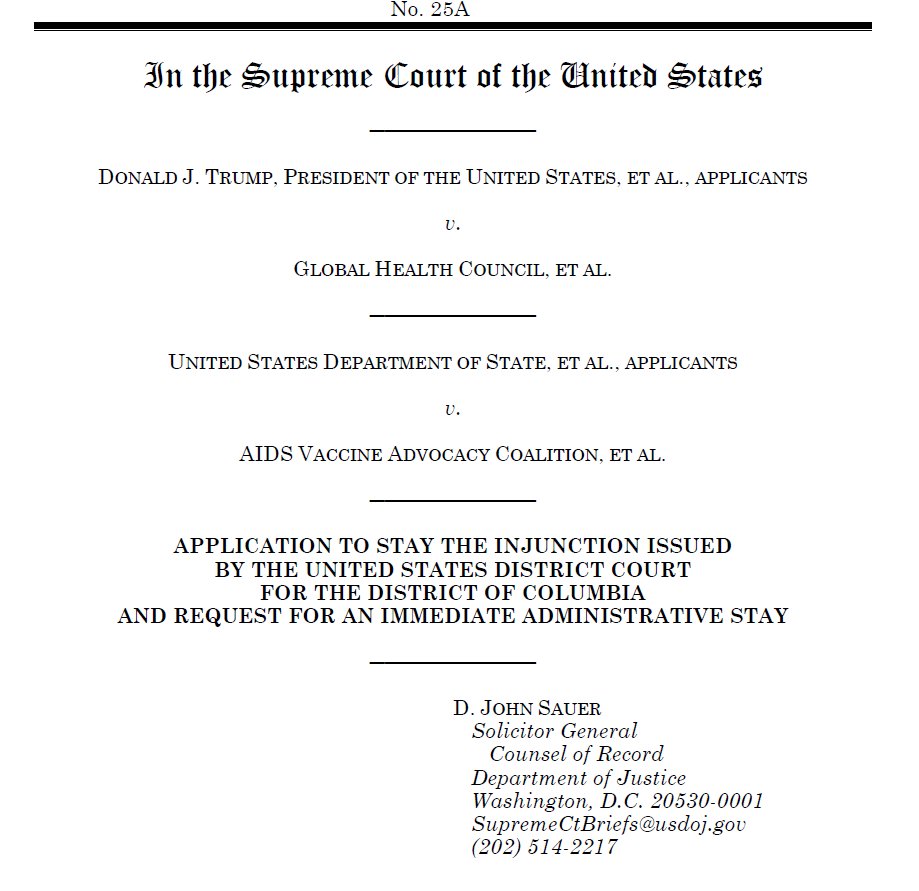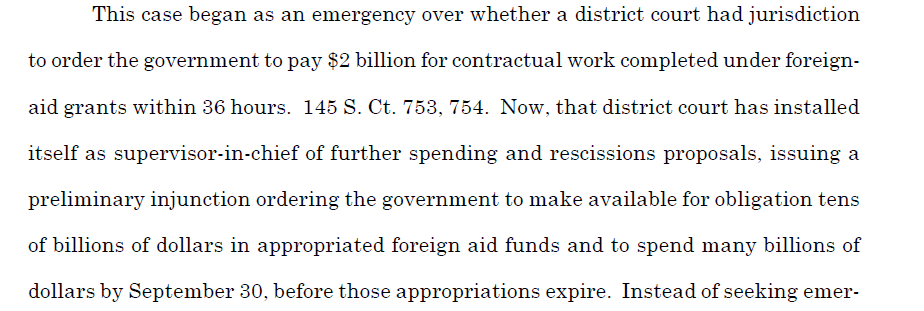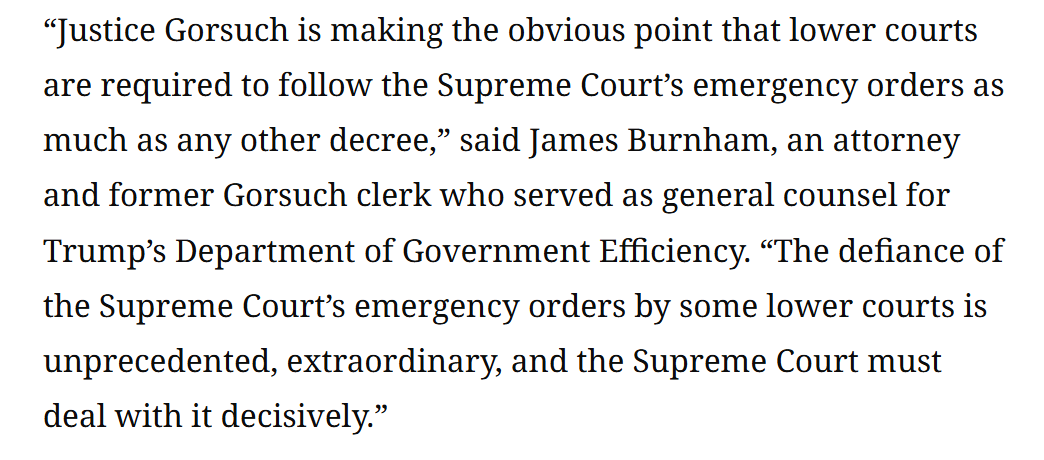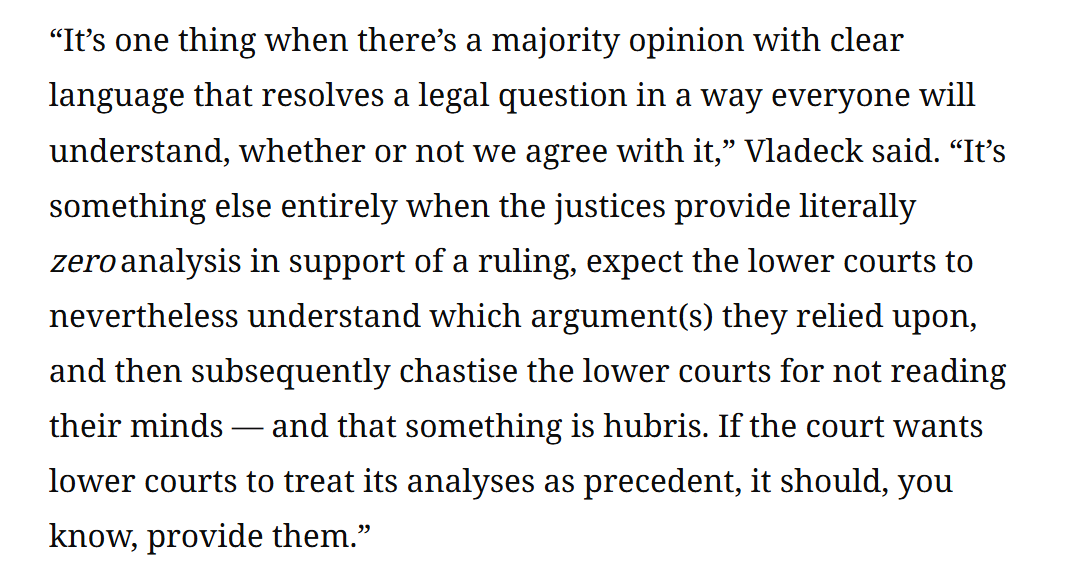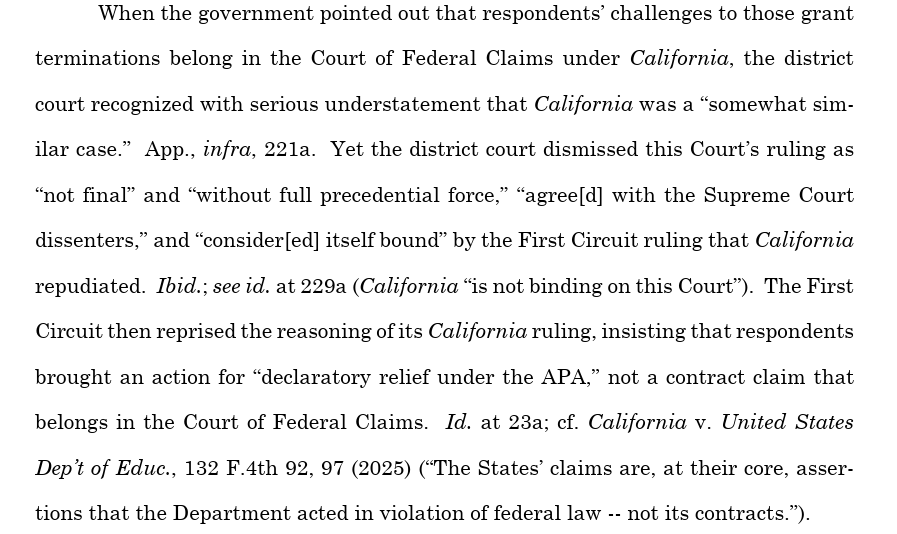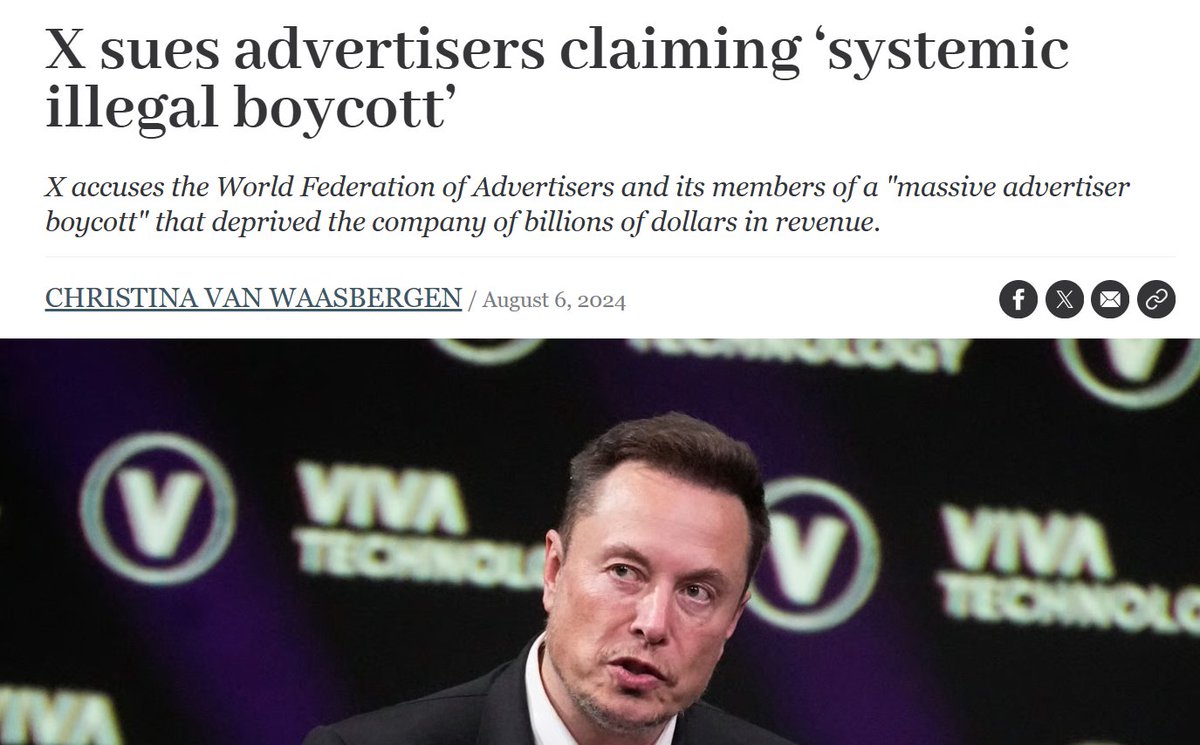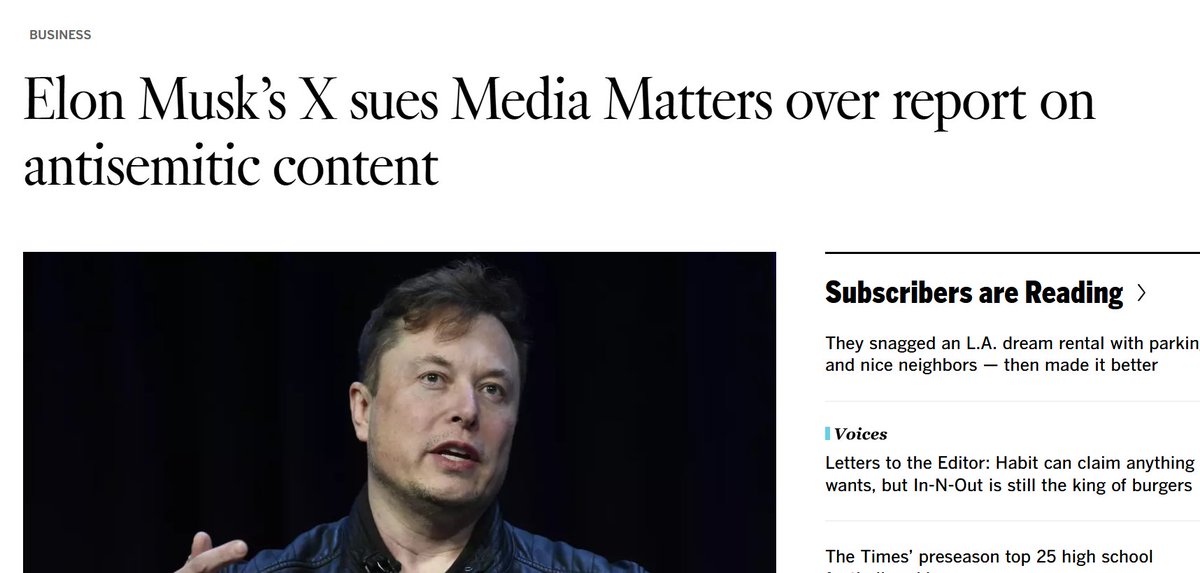Some lower court judges seems determined to burn down the village in order to save it, seemingly oblivious that destroying vertical stare decisis will destroy the judiciary generally. Lets review the latest missive in lower court judges' war on the Supreme Court. 1/
https://twitter.com/lawrencehurley/status/1963559931438584244
First, the basics. The Constitution creates only one court--the Supreme Court. It authorizes Congress to create "inferior courts," but does not mandate them. And the judicial power of these subordinate courts is entirely subordinate to the Supreme Court's. 2/ 

When lower court judges defy the Supreme Court--as has been happening time and again--that is lawless. Plain and simple. The President has Article II arguments to invoke when he interprets and considers judicial commands. Lower court judges have nada vis the Supreme Court. 3/
That's why the lower court revolt is so destructive. Without vertical stare decisis, we no longer have a functional legal system. We no longer have law in the basic sense of predictable and consistent rules. We just have the whims of scattered district judges. 4/
So lets turn to the article and the specious claims several judges anonymously passed to NBC to criticize their superiors. First, they repeat a claim others have made---judges are trying their best to follow the law but are just confused about the right answer. 5/ 
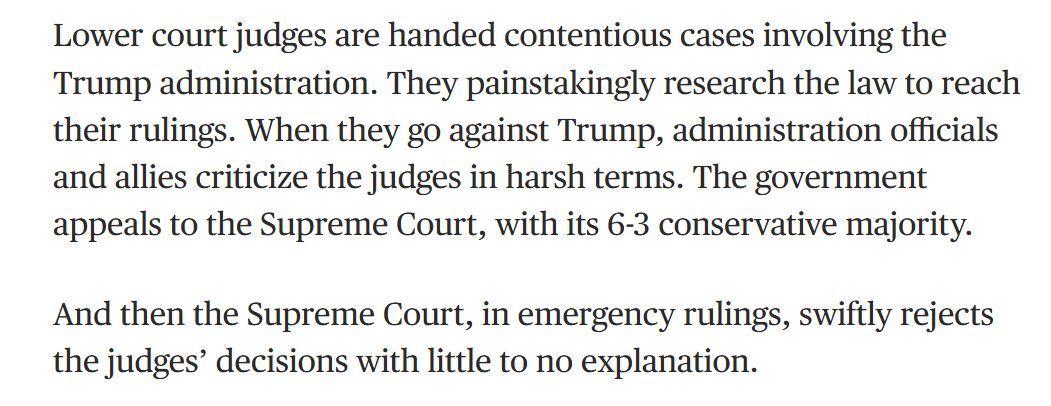
Come on. Some judges are taking extreme positions--Supreme Court emergency orders are not binding, the Supreme Court stayed the TRO but not the identical PI, claims for money can be in district court if they involve constitutional claims--to rule against the Administration. 6/
These judges are not attempting to rule in a manner consistent with how the Supreme Court would apply the law. They are trying to manipulate the law to achieve their preferred outcome. That is the imposition of will not the application of law. 7/
These judges then--incredibly--have the gall to complain about their willfulness meeting a predictable, swift demise at the Supreme Court. Tip: if you don't want it to look like you did "shoddy work," then start following the Supreme Court's lead. 8/ 

One judge complains that the Supreme Court isn't backing up the lower courts--a truly astonishing claim. The Justices took an oath to uphold the law; not get the "backs" of lower court judges trying to wage war on the Executive Branch. 9/ 

Some of the judges claim the Chief Justice should speak out as he has otherwise thrown them "under the bus." First, the Chief should (in my view) speak only in official communications, primarily opinions; press statements are too political for the Justices. 10/ 
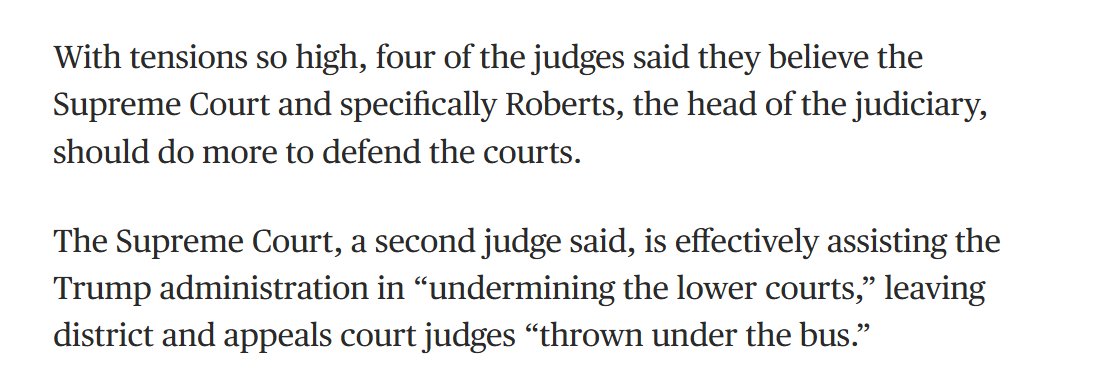
Second and again, when lower court judges assert their power based on will rather than law they are jumping under the bus. Nobody is throwing them there. And the Supreme Court is duty bound to correct such errors. Want less criticism? Do law better. 11/
Nor do I have sympathy for the criticism that the Justices need to write more for the public's sake. The Justices are dealing with an unprecedented onslaught of lower court emergency orders against the Administration; of course they will be issue more emergency orders too. 12/ 

At least one of our anonymous judges--an Obama appointee we are told--can see what's really going on here. 13/ 

Hamilton wrote in Federalist 78 that the judiciary is the least dangerous branch because it has neither force nor will but merely judgment. Through lawless orders, inappropriate leaks, and other acts of defiance, some lower court judges are testing that proposition. 14/ 

District judges have life tenure to ensure they have the independence to apply the law correctly. It is not so they can apply the law they wish existed. Justice Gorsuch was correct to admonish the lower courts. The Supreme Court must remain resolute in enforcing its dictates. /end

• • •
Missing some Tweet in this thread? You can try to
force a refresh


